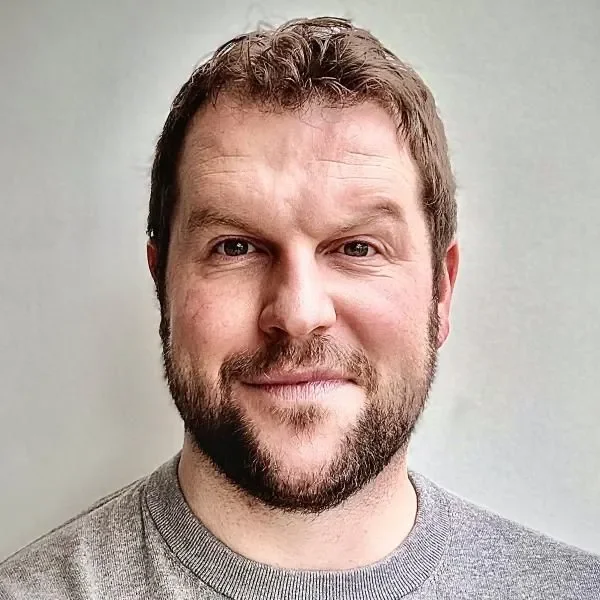

DCU Engineering Graduate Stories: Paul Sheridan
From early school-leaver to playing a key role on one of the world’s most complex building projects, Paul Sheridan’s journey has not been a conventional one. Paul is a chartered Engineer and works as Technical Commissioning Programme Manager on major building projects, where he is focused on ensuring the effectiveness of its “smart building systems”. He says his Master’s in Computer Engineering from DCU has given him a new level of confidence and expertise in a demanding career.
Paul, from Celbridge, Co Kildare, left school after his Junior Certificate. He describes that period as “a pretty chaotic time” during which he was deeply affected by the suicide of a friend and suffered from anxiety and other mental health issues.
At 16, began work as a labourer on construction sites, and a few years later started an apprenticeship as an electrician. After qualifying, he went on to study for an Electrical Engineering degree in TU Dublin, as a qualified electrician his leaving certificate was not required. On completion, due to the recession, he moved to the UK, where he worked for the data centre firm Red Engineering and later for WSP on a variety of landmark projects. While living there he studied for a Master’s in Sustainable Energy Systems from London South Bank University.
Returning to Ireland in 2020, he started a job with Accenture, working as part of the Capital Projects team. His involvement with DCU began when the School of Engineering invited him to speak about his professional experience at an open day for students considering the Master’s in Computer Engineering.
By the end of his visit to DCU, Paul realised he wanted to do the programme himself. “I actually did the presentation to recommend people to join the course and at the same time I was looking at the prospectus and thinking I could do this course, I really need to do this course! So, as soon as I finished doing the presentation, to tell everybody else to do it, I applied for it.”
Having completed degrees in other Universities, Paul was impressed with the DCU approach and says “it just felt a different standard, to be honest with you, particularly around Engineering.” He says his lecturers were “phenomenal” with a genuine passion for their subject and a real-world focus that helped the learning experience. “My experience of the lecturers was that they were just so easy to learn from. And all of the assignments were so current and so applicable.”
With the onset of the pandemic, all of the course was online, but Paul was impressed at how smooth the transition was. “They were already ahead of the curve. All their stuff was online, and like they didn't miss a beat.” He says the experience worked for his learning style. “Honestly, from my perspective of learning it was way better, because I could stop a video and watch it 10 times, you know. Whereas if I was in a lecture theatre and surrounded by people who had programming experience, I’d be so intimidated.”
Throughout his studies, Paul admits he has struggled with the Maths element of coursework. His advice for those in a similar situation is to take a wider perspective on what the course requires. “I knew Maths was going to be a big part of it. But at the same time I knew that in any one of these exams, Maths would probably only make up 20 to 30 per cent, and if I got 15 per cent, that was good enough for me.”
After completing the programme, Paul has continued working on some of “the biggest, most complex projects in the world”. The Master’s in Computer Engineering has given him a new level of confidence and expertise in his professional life. “I’m comfortable. I can sit there and talk data with anybody, I can talk about building integration, or talk about raspberry pi, or whatever it might be. So, I think just the kind of the blend of practicality and the blend of kind of real time application of what you're learning there. It's just above and beyond what I experienced previously.”
This ability to work and communicate across disciplines helps him with the interpersonal aspect of the job. “So you know, maths is only one very small part of what makes up an engineer. An engineer is mostly people skills, you know.”
Find out more about the MEng in Electronic and Computer Engineering at DCU here: https://www.dcu.ie/DC884
